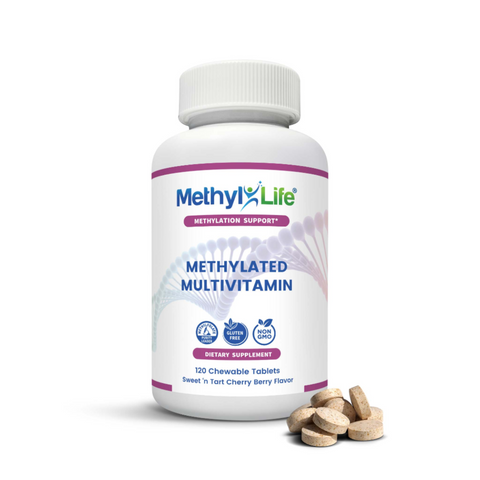The Relationship Between Glutathione, Methylation, and MTHFR
Glutathione and MTHFR are intimately linked by their relationship to the methylation cycle. To understand the role that glutathione plays in the body and how MTHFR impacts it, it’s important to understand methylation.
Methylation is the process in which a methyl group is added to another substance—such as DNA or a protein—so that the substance receiving the methyl group can function. The addition of methyl groups to DNA molecules helps change the activity of a DNA segment without changing its sequence. DNA methylation is involved in gene transcription—the process of turning an RNA copy of a gene sequence “off” or “on.”
Methylation occurs every second in every cell in the body and is required for almost every physiological process. Methylation reactions are vital for the production and the recycling of many important proteins, hormones, and neurotransmitters required for everyday bodily functions. Methylation is responsible for the growth and development of all cells and controls everything from DNA replication to digestive function.
The efficiency of the methylation cycle is highly dependent on specific nutrients, namely folate, B6, and B12. Deficiencies in these nutrients can occur due to disease, poor diet, and/or a genetic mutation on the MTHFR gene. As a result, the methylation cycle will be compromised or impaired, along with many other functions that depend on it, including glutathione production.
This article will explain the importance of glutathione and its relationship with methylation and MTHFR. We will also discuss how an MTHFR mutation can affect glutathione levels—and vice versa—and the health conditions this can lead to.















